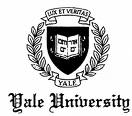So far, I have finished three books--Never Eat Alone, The Prince, and The Art of War--and I'm working on two more (The Rise and Fall of the Great Powers and The Return of History and the End of Dreams).
Never Eat Alone by Keith Ferazzi is an inspirational and autobiographical guide to networking and simultaneously achieving success. It taught me many valuable lessons in setting and achieving goals, interacting with others, and making every moment count. Ferazzi is a Yale and Harvard graduate and a successful business man who grew up as a small-town boy with hardworking (but not rich) parents. His story is especially valuable to me because I am [just] a small-town girl of a hardworking middle-class family, and I have big dreams of attending a prestigious school and attaining success in business. I like the fact, however, that although Ferazzi has "made it", he stresses in Never Eat Alone that you must never forget where you came from and that you must acknowledge the people whom helped you along the way. I hope to incorporate my knowledge from this book during the Ivy Scholars program and in my day-to-day affairs as well. I'm glad that Mr. Ramsey recommended this book to everyone in the ILC, because it makes one realize the important role forming lasting relationships plays in achieving one's dreams in this interdependent world we live in today.
The Prince, though also presenting the secrets to success, has a completely different set of goals and morals. Machiavelli explains to a prince [Lorenzo di Medici] how to acquire a state, how to maintain a state, and everything else in between. Surely I will not follow some Machiavellian ideas, such as acquiring a state and then murdering everyone whom helped stage my coup d'etat, but The Prince also contains less grotesque ideas that I have learned much from. These include relying on virtue rather than fortune. After reading it, I now understand why The Prince is considered "the most famous book on politics ever written". Machiavelli presents extremely well thought-out philosophies in a blunt and logical manner. When I first started reading it, I understood what I was reading, but I soon realized that I was not quite retaining all the information Machiavelli threw at me. In order to grasp it all and retain it better, I summarized every single paragraph of the text. I wrote it in a notebook, but I will type it up soon and post it on the blog. My summaries aren't as profound as Machiavelli's prose, but they capture the essence of his ideas and have helped me truly understand and easily remember what I've read.
The Art of War, though thousands of years old, presents an outlook on life that is as fresh and insightful today as it was in the 6th century B.C. It transcends boundaries such as culture and military use as well. Although it was created in China, its advice is just as useful in the Western world. Additionally, despite being primarily associated with the military, its insight is applicable to just about anything. When I first read the title, "The Art of War", I thought that I would be learning about things that cannot be applied to my daily life. However, now after having finished the book, the maxim of "taking whole"--valuing victory over battle--is just as applicable in high school drama and academic success as it is on the battlefield. I especially love the diction of the Sun Tzu--it's a cross between prose and poetry. I am glad that the translators did their best to capture the same feel in English. One of my favorite passages is Knowing the other and knowing oneself,
In one hundred battles no danger.
Not knowing the other and knowing oneself,
One victory for one loss.
Not knowing the other and not knowing oneself,
In every battle certain defeat.
I can clearly see why this ancient work, with its advocacy of approaching conflict with knowledge and situation-specific strategy, is still very relevant today.
I am eager to see how these three books will factor into our lessons in grand strategy at Yale. While reading them, I was already making many AP U.S. History-related correlations in my head, such as the bombing of Hiroshima, whch was a speedy way to end WWII, is justified by a line from Sun Tzu that says "there has never been a military prolonging that has brought advantage to the state".
Now, I just have to finish seven more books before we're off to Yale! I will definitely make progress because I will be going to New York City for a week. I will have two six-hour long plane rides and many subway rides in which I can read the books.
Three more weeks!




